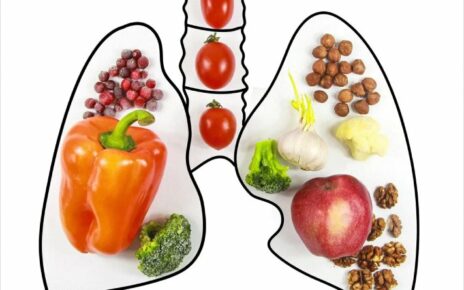Apricots are small stone fruit or drupes—thin-skinned fruits with a stone in the center that holds a seed—popularly consumed fresh or dried. Their petite size makes them great for snacking, while the dried version is great for throwing in a trail mix for a fiber boost on the go.
Besides fiber, their vitamin and antioxidant profile promotes various facets of health. Here are the benefits of apricots, their nutrition facts, risks, and tips for making them a regular part of your diet.
Contain Fiber For Healthy Digestion
One of apricots’ key nutrients is fiber; each cup of fresh apricot has 3.1 grams (g) which is almost 11% of the daily value (DV).1 The fiber content is split pretty evenly between soluble and insoluble fiber, which are both important for digestive and overall health.2
Soluble fiber helps soften the stool so it can move more easily through the digestive tract, while insoluble fiber adds bulk to the stool to keep things moving and prevent constipation.
As a bonus, fiber also helps reduce cholesterol levels, manage blood sugars, and promote satiety.3
Rich In Vitamin C For Immune And Skin Health
Each cup of apricots has about 15 g of vitamin C—17% of the DV.4 Vitamin C is an important nutrient for various facets of health, especially immune and skin health.5 It promotes innate and adaptive immunity to fend off harmful pathogens.
Plus, it helps with collagen synthesis, an important component of connective tissue. Since the skin is also part of our immune system, vitamin C’s skin health benefits have immune boosting benefits, too.6
Have Key Nutrients For Eye Health
Carrots are good for eye health, and so are apricots. Their shared orange color is a result of similar nutrients. Apricots are a good source of vitamin A—a group of fat-soluble retinols—arguably most known for its role in promoting eye health. That’s primarily because vitamin A is an essential part of rhodopsin, a protein in your eyes that helps them respond to light. Vitamin A also plays a role in the optimal functioning of other parts of the eye—the cornea and conjunctival membranes.7
Besides vitamin A, the vitamin C in apricots helps protect against cataracts and slows the progression of age-related macular degeneration and visual acuity loss. Plus, their antioxidant profile, which we’ll get to next, helps protect against chronic eye diseases.8
Good Source of Health-promoting Antioxidants
Apricots are a great source of antioxidants including vitamin C, vitamin A, and beta carotene. They’re also rich in phenolic compounds, another kind of antioxidant that’s associated with lower rates of cancer and cardiovascular disease.9
Antioxidants help neutralize free radicals that cause oxidative stress in our bodies. We can be exposed to free radicals from a number of sources including cigarette smoke, air pollution, sunlight, and even exercise. Oxidative stress is linked to diseases such as cancer, cardiovascular disease, diabetes, Alzheimer’s, Parkinson’s, and certain eye diseases.10
Help You Stay Hydrated
We can hydrate ourselves with more than just water; fruits and vegetables are another great way to hydrate since they have a high water content (if you notice craving fresh fruit and veggies more in the summer, this may be why!). Apricots are about 85% water, so not only do they provide important nutrients, but they also provide hydration.
Staying hydrated helps with temperature regulation, joint lubrication, and waste removal (through urine, sweat, and bowel movements).11 After all, our bodies are about 50–60% water.12
Note that this is only the case for fresh apricots. Dried apricots have their water removed, so they don’t provide hydrating benefits.
Nutritional Facts of Apricots
The nutrition profile of one fresh apricot (35 g), per the USDA, is:1
Calories: 17 calories
Fat: 0.14 g
Sodium: 0.35 g
Carbohydrates: 3.9 g
Fiber: 0.7 g
Added sugars: 0 g
Protein: 0.5 g
Vitamin C: 3.5 g
Vitamin A: 33.6 g
Since apricots are a small fruit, their nutrition may seem minimal, but eating more than one will amplify their benefits, specifically when it comes to fiber, vitamin A, vitamin C, and other antioxidants.
Those with diabetes should be mindful of the fact that they contain about 4 g of carbohydrates per fruit with minimal protein and fat. So, you may need to pair them with a source of protein and/or fat to prevent blood sugar spikes.
Risks of Eating Apricots
Besides fresh apricots, dried apricots are popular. These are another great option for boosting your fiber and vitamin intake, especially since they have a much longer shelf life and are easy to take on the go. However, dried fruits are essentially concentrated versions of fresh fruit, so they will have more carbohydrates in a smaller volume, which may warrant greater caution for those with diabetes.
Furthermore, some dried fruits have added sugars, an ingredient the Dietary Guidelines for Americans recommend limiting to less than 10% of your daily intake (12 teaspoons for a 2,000-calorie diet).13 If you’re trying to limit your added sugar content, check the nutrition facts label before purchasing dried apricots to ensure there are no added sugars.
Tips for Consuming Apricots
Apricots can be eaten in a bunch of ways, which makes them versatile and fun to experiment with in the kitchen. Here are some tips for consuming apricots:
Leave fresh apricots on the counter to let them ripen.
Once they are ripe, refrigerate fresh apricots to extend their shelf life.
Cut fresh apricots up and freeze them if you won’t use them before they go bad.
Use frozen apricots to make refreshing smoothies.
Enjoy fresh apricots on their own for a refreshing snack.
Make fresh jam, scones, or oatmeal bars using fresh apricots.
Use dried apricots as a yogurt topping or trail mix ingredient.
Pack dried apricots on a road trip or flight for a fiber boost on the go.
Pair apricots with sources of fat and protein like nuts, seeds, or cheese to prevent rapid blood sugar spikes, especially if you have diabetes.
Included dried apricots on a charcuterie board at your next gathering.




